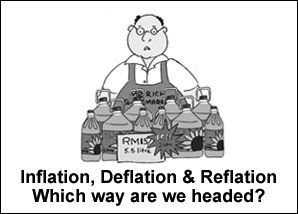Good Things Come To Those Who Wait?
A look at immediate and delayed gratification.
Thanks to the advancement of technology, life is now lived at high speed. Our coffee is instant, noodles are ready to eat in less than 5 minutes, and a text message takes almost next to no time to reach the intended party. Information is at our fingertips with search engines like Google returning thousands of search listings within seconds. Queues and delays are frowned upon. In short, if it is possible, we want it all, right now. It’s the immediate gratification way of life.
When it comes to financial matters, the impact of immediate gratification can be huge. Invest RM5,000 into a retirement fund 10, 20 or 30 years away or spend it now on a sunny vacation in Bali? Very often, enjoying ourselves today wins. In fact, according to the Future of Retirement 7, Malaysia Report (FoR), 1 out of 3 of the respondents surveyed (37%) would prioritise saving for a holiday over retirement1.
However, our ability to put off gratification is proven to have a direct impact on our success, not just financially, but all aspects of life. Here’s a summary of the now famous Stanford Marshmallow Test.
In 1972, psychologist Walter Mischel, a Stanford University professor, conducted an experiment on a group of nursery-school children. He put them one-by-one in a room and a treat (they could choose a cookie, a pretzel stick, or a marshmallow) was placed in front of them. They were told that, they could eat the treat right away but if they could wait 15 minutes until the researcher returned, they could have two. Some children attempted to distract themselves by covering their eyes with their hands or turned around to avoid seeing the treat. There were also others who would simply eat the treat as soon as the researchers left. More than 10 years later, Mischel followed up on the children and “found that the ability to hold out in this seemingly trivial exercise had real and profound consequences. As they matured and became adults, the kids who had shown the ability to wait got better grades, were healthier, enjoyed greater professional success, and proved better at staying in relationships—even decades after they took the test. They were, in short, better at life2.”
Brian Tracy, a top professional business and personal success speaker and author puts it succinctly, “The ability to discipline yourself to delay gratification in the short term in order to enjoy greater rewards in the long term, is the indispensable prerequisite for success3.”
However it does not mean forgoing all short-term enjoyment. Rather, “a proper balance needs to be established between spending on short term needs and saving for longer term goals. Shifting priorities now towards longer term saving can lead to a more prosperous future1.” As discovered in the FoR survey.
While some people may seem better at deferring gratification than other, the good news is, it is a skill that can always be nurtured. Consider some of the ways below to cultivate is as you grow your wealth alongside.
 Imagine and “feel” your future
Imagine and “feel” your future
Research has shown that there are constant “negotiations” between two areas of the brain, competing for control over behavior when considering near-term rewards with long-term goals. Impulsive choices for immediate gratification are driven by the emotion-related parts of the brain, while the logical part of our brain is activated when taking a long-term view. One of the reasons we often give in to immediate gratification is our failure to “feel” the emotion of the future-reward. This fuzziness is what makes the future less appealing, such as saving for retirement versus the bliss of a sun & spa holiday, right now. Being able to visualise your future, with as much detail as possible, may help give the brain the emotional satisfaction it needs to believe that the wait is worth it4. Perhaps, you are like over 75% of FoR respondents whose future aspiration for retirement is to spend more tme with family. If so, then start to colour your goal with as much detail as you wish-eg. Sunday brunches at your house with the grandkids, the destinations you would want to go with your family, etc1.
 Clarify what’s important to you
Clarify what’s important to you
Knowing your financial goals and what you value may go a long way towards thwarting the allure of immediate gratification. Identifying your values may help you distinguish between true needs and wants as well as help solidify decisions, eg. Do you put money into your child’s education fund or pay the deposit for a bigger home? Neither is a wrong choice, but having financial goals may guide you in deciding the best course of action at a certain point in time.
 Take action now
Take action now
Draft a financial plan as a roadmap towards your future:
Decide how you would want to invest to reach your goals, your risk appetite and investment time frame, financial priorities, the things you are saving for, the lifestyle you would want to lead, the amount you need in your emergency fund, etc. You can always speak to your Relationship Manager to review your financial plan and help grow your wealth through our many available investment funds and retirement products.
Automate it:
If possible, set up standing instructions for your investments and deposit a percentage of your salary to a savings account for a specific goal (eg. Emergency fund), to avoid having to make “Should I spend it now or invest it?” decisions over and over again. Your willpower may not be as keen every time and you may risk falling off the investment bandwagon. You may easily set up these standing instructions with your HSBC Current/Savings account besides using the account for your day to day financial management.
Seek advice:
Getting professional financial advice may bear more fruit in the future. “In Malaysia, 53% of the respondents say that financial planning led to increased saving for retirement. Of those who used a professional financial adviser, 60% saved more for retirement. And of those who consulted a professional financial adviser to develop a written financial plan, 67% saved more for retirement1.”
Stay patient and persistent
Getting rich quick may seem tempting but building real wealth requires time, persistence and patience. For instance, trading vs. investing. “Trading” here refers to “lottery style buying and selling of stock”, which in its own way, offers a measure of instant gratification when the stock gains a profit (and much anxiety when it does not). On the other hand, investing to build wealth over a lifetime may not offer as much thrill. It takes a very different mindset and more work to analyse the companies and know the industries/ markets you are getting into. But the returns may be potentially better over a longer investment duration5.
Just take a look at the comparison of the Average Top 20 Performing Funds6 chart on the left, which shows funds generally offer higher returns over a longer term.
Enjoy anticipation
Waiting need not be a pain. In fact, the simple act of anticipation can boost happiness, as revealed in a research from Netherlands7. The study sets out to measure the effect vacations have on overall happiness and how long it lasts. Results show that the anticipation of the vacation boosted happiness for eight weeks while happiness after the vacation quickly dropped back to baseline levels for most people8. Immediate gratification robs us of the joy of anticipation. Learn to anticipate so that when the reward comes, it may be even more blissful.
Build in rewarding milestones
Make the wait count. Allocate a small percentage of your savings to motivate yourself to keep reaching for your long term goal and give yourself a foretaste of things to come. For example, if you are planning to save RM30,000 for a luxurious holiday abroad, a reward may be a simple weekend getaway at a local resort when you reach the halfway mark in your holiday fund. Also, check out HSBC’s SmartPrivileges for attractive offers and discounts as well as home&Away offers to stretch your ringgit.
Delaying gratification may not be fun. However, if your goals are worthwhile, the wait may well be worth it.
Source:
1. Reproduced with permission from The Future of Retirement, published in 2013 by HSBC Insurance Holdings Limited, London. 2. Bloomberg Businessweek, “What Does the Marshmallow Test Actually Test?” 17 October 2012 3. http://www.goodreads.com/quotes/23014 4. Scientific American, “How to Avoid the Temptations of Immediate Gratification” 15 January 2013 5. Forbes.com and Northwestern Mutual, “The Five W’s Of Bad Investing Behavior”, 16 May 2012 6. Top 20 performing Unit Trust Funds distributed by HSBC (ranked by 3 years performance growth %), chart prepared by HSBC with data sourced from Morningstar Asia Limited as of February 2013.7. Applied Research in Quality of Life, The Official Journal of the International Society for Quality-of-Life Studies, “Vacationers Happier, but Most not Happier After a Holiday,” by Jeroen Nawijn, Miquelle A. Marchand, Ruut Veenhoven and Ad J. Vingerhoets. Published online on SpringerLink.com, 10 February 2010.) 8. New York Times, “How Vacations Affect Your Happiness” 18 February 2010
April 2013


 LIKE THIS ARTICLE?
LIKE THIS ARTICLE?
























